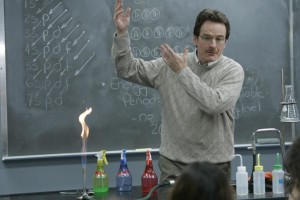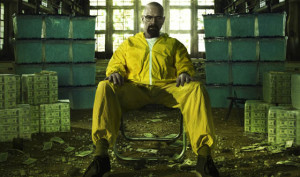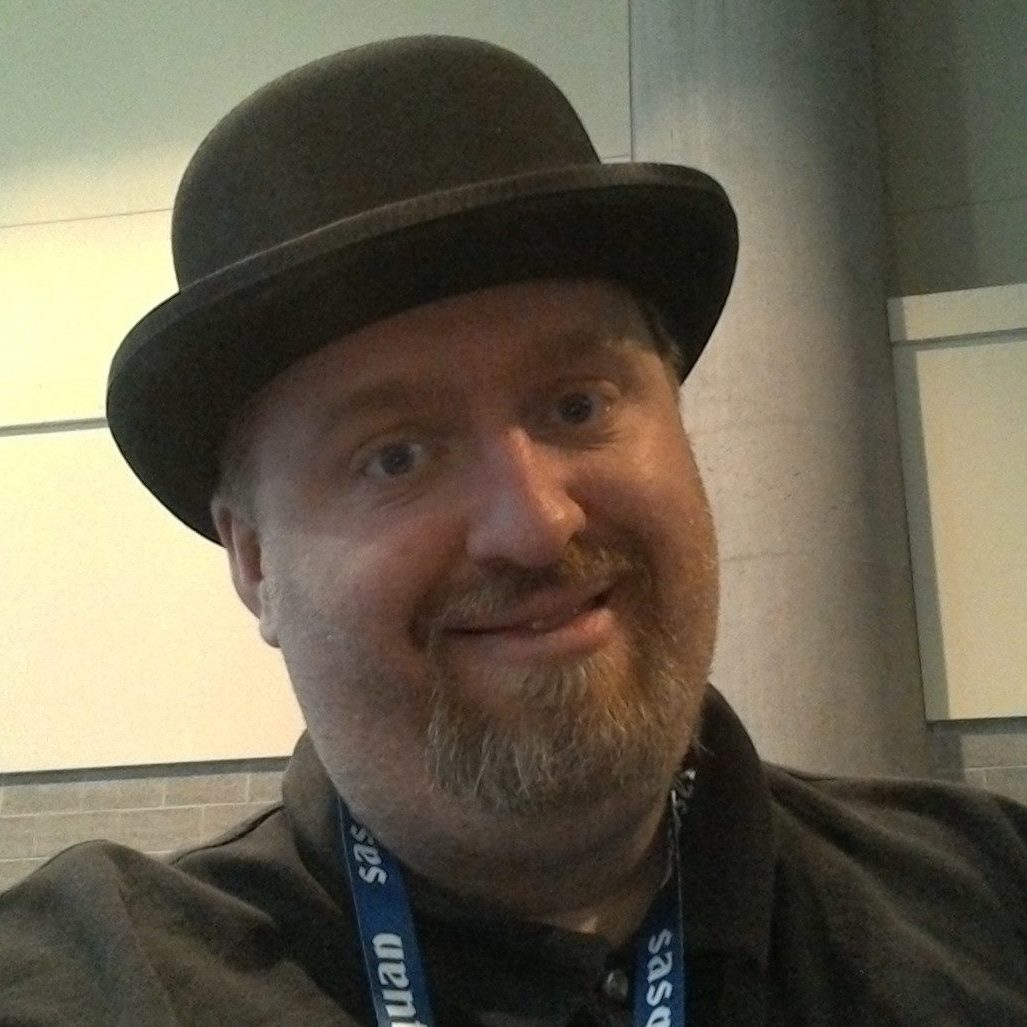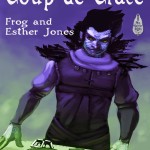Sergeant Johnson didn’t fear combat drops anymore. He pressed the button and entered freefall. Ten jumps, and him the last survivor of his class. Groundside, everything was blood and lead, but in freefall there was…freedom. The retros fired, his capsule released him, and the parachute would have taken over. If, this time, he wore one.
Tag Archives: Frog Jones
If Your Character Isn’t Memorable, Don’t Despair – Here’s Help!
You’ve read all the books, taken the workshops, and you’ve created your character bibles. You’ve even thought a little about which characters you like and why (see my post Memorable Characters – Who Do You Like?). Still, your character isn’t quite quintessential and therefore not memorable. What to do? Learn from the best. “But!” you say, “I don’t have time to study all those books, see all the movies!” The solution is easy – read April 2016’s blogs on Creating Memorable Characters. I’ve gleaned some tips and have summed them up (or have taken excerpts). Click on the links to each person’s blog to read it in its entirety.
These are the best how-to’s! Seriously, there’s a lot of great take-aways in these.
Sometimes less is more …
For David Carrico (Enter the Villain), Baron Vladimir Harkonnen is an absolute sadist, a pederast, and an incestophile, yet very little of that is shown “on screen” so to speak in the novel. The reader is given glimpses here and there of the raw evil lying beneath the surface of what is otherwise a very forceful, articulate, and urbane man. Herbert made the Baron memorable by understating him
Leigh Galbreath (Chaos For It’s Own Sake) says she doesn’t want to sympathize with a great villain and wants a villain that will make the hero work for every inch. What she loves about the the Joker in Christopher Nolan’s The Dark Knight, is Nolan’s conscious decision to leave some of the story up to the audience.
Mat Cauthon in Robert Jordan’s The Wheel of Time series is a stellar example of how to make a character funny not by what they say, but by who they are. In Gambler, Trickster, Son of Battles, Gregory D. Little notes that the humour of Mat’s character isn’t in what he says, but rather the irony the series continually thrusts upon him: contemptuous of nobility he, of course, marries an empress.
A Mix of Good, Bad and Ugly or, the Imperfect Character
In Taking Strides in Character Development, Sean Golden points out that Strider’s mysterious past, his wit and wisdom, all factor in to create a reluctant hero in an almost a surly way. Strider struggles with self-doubt. He falters. He worries. He doubts. He takes chances. And in the end, he finds himself.
Characters become more likeable and sympathetic when they suffer or show genuine concern even if it’s at their own expense. In The Roller Coaster that was Tig Trager, Jace Killan explains that Tig wasn’t all good or all bad and it was Tig’s good traits that got him into trouble and sometimes it was his bad traits that got him out. It wasn’t easy and it took time for Tig to recover from what he had done.
Not every memorable character needs fisticuffs
You don’t need fisticuffs to be a hero or memorable. Evan Braun (The Ultimate Philosopher King) writes that Jean Luc Picard is the philosopher who rules as king, the true pilot who observes the stars and the heavens to preside over his ship. In the midst of near-perfect humanity, Picard shines brightly. As Shakespeare might say, he is the paragon of animals.
Inner strength without physical prowess can make for an admirable persona and Dashti in Dashti of a Thousand Days proves that. Colette Black notes that it’s complex characterization, where Dashti learns to temper a character flaw and discovers that her real power lies, not with physical prowess, but in her determination, an inner strength and loyalty.
The everyday man is tested…
In Yippee-ki-yay: The Most Reluctant Hero, Kristin Luna writes about how John McClane is a great example of how a hero doesn’t always have to be willing. He can be the wrong guy in the wrong place at the wrong time and still kick some major butt. Giving your hero a strong personality and a little reluctance can be a recipe for one of the most memorable heroes of all time.
For Frank Morin (When a Gardener Helps Defeat a Dark Lord) Samwise Gamgee is memorable because he accepts that his place in the world is not to be the hero, but to be the hero’s cook, assistant, and bodyguard. And yet, he demonstrates in his simple way that heroes are not always the great warriors, with the flashy armor or dazzling magic. Heroes get the job done. Any one of us could be Sam.
In the life of every evil person there is a series of decisions that lead, inevitably, to damnation. This is the moment where your villain goes wrong. The moment where he or she makes the decision to do the wrong thing for all the right reasons. After that, it’s a slow and gradual slide into hell. That’s Frog Jones’ take on Walter White. To learn more, read Regarding the Humble Blowfish.
Just because that’s the way it is…
Kim May (Marty Stus by Moonlight) writes about Chiba Mamoru being an ideal of a man: strong, silent, and enigmatic. The perfect gentleman whose sole purpose is to be Sailor Moon’s love interest, to rescue her from peril when her klutziness and fears get the best of her. You have to admit. There are times when we really really need that kind of rescuing. Marty Stus were never meant to be the ideal we should hold out for. They’re the ideal that we have little escapist fantasies about on a moonlit night when reality is too much…and there’s no shame in that.
Which brings me back to Leigh Galbreath’s post about the Joker because sometimes you want Chaos For It’s Own Sake.
Villains come in all shades
The reluctant villain and one who you can’t resist! In A Character You Can’t Refuse, Marta Sprout talks about how Michael Corleone does some terrible things and yet we still like him. We’re drawn to him as he is slowly pulled away from his own honorable world and into his family’s mob dealings. When a character changes so profoundly it’s engrossing and it was done one reasonable step at a time. At each moment Michael is held tightly into his role where he can’t back out.
The loveable antagonist. Instead of hating Gollum, David Heyman, reveals in A Preciously Complex Character that he liked Gollum, felt sorry for him, and hoped Frodo would find a solution to his problem that didn’t force Gollum (and Smeagol) to lose. Gollum’s love of the Ring is heartbreakingly pure: even as it destroys and corrupts him, he wants nothing from life other than to possess it.
That’s me! Sometimes the villain is us pushed to the wall. In Walter White, you monster, E. Godhand says that a villain protagonist whose methods may not be right, can win your sympathy and support because after doing everything right and getting nothing in return, he has nothing left to lose. We feel the adage, “But for the Grace of God, goes I.”
Pure Evil. And, as David Carrico said in Enter the Villain, Baron Vladimir Harkonnen is an absolute sadist, a pederast, and an incestophile. Pure evil works too!
A Personal Truth We Can Relate To – and it comes in all shapes, sizes and tropes!
Character Arc – In Summoning Character Development, Sarah Golden found that Yuna’s response to adversity (not the sword but endurance and wisdom) made her an admirable character with emotional and spiritual strength. But, she didn’t start out that way. She develops from doing what other people want to having her own thoughts, and making her own decisions.
Someone different yet real – When you bring in a character who is so different from the others, she not only illuminates the cast, but her character is more profound. But, as Peter Clampton explains in The Girl Who Changed EVERYTHING!, Asuka Langley Soryu is no cheap trope, used to simply spice things up for she brings her own history, strengths and weaknesses. She’s a protagonist with real and profound problems who deals by self-medicating in isolation.
I love doing this! Jacqui Talbot’s admiration of Flavia de Luce (You Had Me at Nitrogen Pentoxide) comes from her own love of chemistry and solving mysteries. As she says, Flacia is a beguiling cross between Pippi Longstocking and Sherlock Holmes. Flavia is an eleven-year-old sleuth with a passion for chemistry (specifically poisons) and a penchant for crime solving.
The hero within rises! D.H. Aire (A Lesson in Character from Superman) tells us that Superman was created during the cusp of Worlds War II to illuminate Americans about the Nazi threat. Thus a superhero who fights for truth and justice was more than a mere story for Siegel and Shuster. Superman is memorable because he had a secret identity (a hero deep inside), and that’s a feeling we all have, that inside, we too are heroes.
Do what must be done! For Joshua David Bennett (The Power of Pain) Kaladin Stormblessed’s ability to overcome pain and hardship, not wallow in it, made him memorable. He’s an inspiration to rise to the occasion, to do what must be done.
The devil is in the detail so find one!
As Josh Vogt explains of his own writing in When All Else Fails, Bring in a Lizard, the protagonist, Dani wasn’t memorable until he gave her a quirk. A pet lizard! The lizard seems at odds with her original self. That presented a mystery (even a minor one) to unravel, which created personality paradoxes which were entertaining.
Taken to another medium, some characters sometimes become more memorable and others we wish we could forget.
Watching Sidney Poitier play Kimani Wa Karanja was profoundly moving for W.J. Cherf (Something of Value: Of Boyhood Friendships and Harsh Realities). Kimani (Poitier) became his favorite character (actor) because of his immense depth, passion, pride of place, and desire to succeed. Even with his dying breaths, after bitterly fighting his boyhood friend Peter, Kimani died hoping, yearning, for “something of value.” Poitier absolutely nailed the character and the role.
Good characters usually have clear motives with stakes involved Matt Beckett states in Lex Talk About Lex, Baby. Reintroduced characters shouldn’t rely too much on a savvy audience already familiar with the brand. Lex Luthor wasn’t given a good platform this round. His motive didn’t hit home and wobbled.
When Kevin Ikenberry (The Most Successful Bankrobber Ever) saw Jack Foley played by Clooney it was the perfect match! Kevin wrote: as I read Road Dogs, I could not stop seeing and hearing Clooney in the role. That’s where Foley transcended being a likable sympathetic character into something different. Clooney’s effortless performance as Foley indelibly attaches his “aura” to the character. But is it the actor or the character that is memorable? I vote character. No matter the actor’s talent, commitment to the role, or appearance, the character is developed on paper and is the vision of the writer/screenwriter that the actor is to bring to life. When it’s done perfectly in a book, it resonates with us. When we see that on camera, it’s more than memorable. It’s legendary.
Readers must care about a character!
Memorable characters, Mary Pletsch wrote in More than Meets the Eye, must be seen as people we come to know, then we become invested in them and their stories. When we see that their actions not only affect the plot but drive it forward, we care about what they do. And when we wonder and worry about what will happen to our favourites, we keep coming back–issue after issue, year after year. It’s the character work that makes the story shine
Marta Sprout sums it all up best when she said: When we write characters, we balance two seemingly oppositional things: the character must have qualities that resonate with the reader and he or she must venture into areas the reader would never go and take actions that the reader could not do. Therein lies the grounds for spellbinding characters.
There you have it – great lessons for making memorable characters. Pick your angle, work with it and you’ll have readers asking for more!
Regarding the Humble Blowfish: A Guest Post by Frog Jones
A guest post by Frog Jones.
In my day job, I’m a public defender. This means, among other things, that any time I am placed on panels at conventions, invariably one of those panels will be the “What Makes A Good Villain” panel. After years of giving this panel, I can say with a certainty that the question of how to build a really solid, evil character is one of the harder challenges in writing.
Because here’s the thing: humans don’t set out to be evil. Nobody wakes up in the morning and says to themselves “That’s it. Time to go dark. I am going to start the killing with…you.” Doesn’t happen that way. No, evil is a slow, insidious process of a thousand decisions, each one of which appears to be completely correct at the time, but the sum total of which is a monster.
I’m talking about villains, here. Not just antagonists; that can be any opposing force. I’m talking about truly evil people who want to do truly evil things. Writing someone like that who doesn’t come off as a mustache-twirling dude in a top hat next to a woman whom he has strapped to some train tracks is a real trick.
And this is why I want to talk about Walter White.
Walter is, in the beginning of the series, just a normal guy. He teaches high school  students, has a wife and a disabled son. He works a second job at a car wash to pay the bills, and even then the family is just barely getting by. They cannot afford a new water heater. Still, it’s his pride to be the guy taking care of his family. He’s constantly under stress, but he takes that stress and bottles it down because, well, that’s what you do.
students, has a wife and a disabled son. He works a second job at a car wash to pay the bills, and even then the family is just barely getting by. They cannot afford a new water heater. Still, it’s his pride to be the guy taking care of his family. He’s constantly under stress, but he takes that stress and bottles it down because, well, that’s what you do.
Fast forward to Season Five, and Walter White is a drug lord with no compunctions about murdering for his territory or threatening his family. He is, by anyone’s account, evil.
 Now, I’m not saying you have to write five seasons of a television series to get a believable villain into your plot. But I do recommend that you figure out how and why your villain broke bad. And Walter White is a great model of the basic things you need to get there.
Now, I’m not saying you have to write five seasons of a television series to get a believable villain into your plot. But I do recommend that you figure out how and why your villain broke bad. And Walter White is a great model of the basic things you need to get there.
For Walter, the cancer triggered him. Once he knows he’s dying of cancer, he realizes he will no longer be able to take care of his family. And that right there? It’s the one thing he had. Oh, he’s not rich like his college buddy who didn’t sell his stock early, but he is taking care of his family. It’s the one thing he has to be proud about.
This pride? It’s normally considered a virtue in society. Walter wants to make sure that he’s the guy who provides, not someone else. Good on him, right? Way to stand up and take responsibility. Way to “be a man.”
So now we have a series of pressures placed on Walter. One is his financial pressure, because he never has enough money to provide for the basics of life. The next is his self-applied pressure to provide for the family himself. When the cancer comes along, it adds a ticking clock. Now Walter has to make a significant amount of money very, very quickly, because to do otherwise would be to fail in his responsibility to his family.
See what happened there? Not a bad guy. Just a guy put in a position where all the pressures on him forced him into a situation where the next choice seems perfectly logical. If you’re a professional chemist, and you need to make a lot of money very quickly, then cooking meth makes a lot of sense.
This right here? This is the point where you need to take your villain. It may be backstory, in your case; it certainly was in mine. But in the life of every evil person, and I know this as someone who spends his entire life working with evil people, there is a series of decisions that lead, inevitably, to damnation. And it starts with one.
Walter’s decision is wrong. But it’s perfectly logical. It makes sense. He’s going to die anyways, so the legal consequences aren’t really a big deal. He needs the money. Someone is going to sell meth to these junkies, and that meth will be laced with all kinds of other things, because they aren’t nearly as good at this as Walter.
This is the moment. The moment where your villain goes wrong. The moment where he or she makes the decision to do the wrong thing for all the right reasons. After that, it’s a slow and gradual slide into hell.
Not every story can or should be Breaking Bad. But everyone who wants to write an evil character should watch Breaking Bad, because it is a perfect case study in how a villain is born.
Frog Jones writes with his wife, Esther. After a ten-year vow to never show each other a word they had written, they eventually broke down and wrote a novel together. Together, they have published the Gift of Grace series from Sky Warrior Books, as well as short stories in anthologies such as How Beer Saved the World, First Contact Café, and Tales from an Alien Campfire, as well as many more.
The Joneses live on the Puget Sound in the State of Washington with Oxeye, who is twenty-five pounds of pure bunny. Frog’s works can be found at http://www.jonestales.com, and he also appears on the Three Unwise Men podcast at http://3unwisemen.com.
The Highs and Lows of Life
A Guest Post by Frog Jones
My name is Frog, and I am an addict.
To begin with, I am a full-time public defender. In the course of that job, I spend roughly fifty hours a week wrist-
deep in legal briefs and heroin addicts. When I am practicing as an attorney, I owe it to my clients to be the best attorney I can be. When years in prison are on the line, it’s my job to make absolutely sure that the State gets it right. So when I am working as an attorney, I cannot be anything but an attorney.
When I stand in front of a jury, it’s a rush. I love it, and the whole world melts away into nothing but me, and my voice, and my will. A well-done closing carries you and your jury into a rhetorical ecstasy, and I chase that high on every trial I do.
I am an addict.
I am also involved with the Mason County Drug Court. Here, I’m not just an attorney; I am a part of a therapeutic team. When I’m serving on the Drug Court, or serving as legal counsel for the Drug Court foundation, I owe it to the addicts who are actually struggling to improve their lives to be the best Drug Court team member I can be. So I volunteer for the Foundation, giving extra of my time to make sure that the program has the resources it needs to help those people. And I get to watch people improve from their addictions. Do you know what it feels like to watch a drug addict hit one year clean and sober, get a job, and get to spend time with their child for the first time in six years? Knowing I’m a part of something like that is a glorious feeling, and I chase that high with every participant that comes into the program.
I am an addict.
 I am the Chairman of the Board for the Mason County HOST program. Seems pretty technical, but what it means is I volunteer to organize and lead a team of people who are devoted to housing the homeless teenagers in Mason County. This organization has two employees, three community grants, and a Memorandum of Understanding with the County, and is responsible for a budget of roughly $160,000 per year. And as a result, the homeless teenagers who make their way into this program all graduate high school. 70% of them move on to post-secondary education. These numbers are so good that the federal HUD program has inspected us to figure out what we are doing right.
I am the Chairman of the Board for the Mason County HOST program. Seems pretty technical, but what it means is I volunteer to organize and lead a team of people who are devoted to housing the homeless teenagers in Mason County. This organization has two employees, three community grants, and a Memorandum of Understanding with the County, and is responsible for a budget of roughly $160,000 per year. And as a result, the homeless teenagers who make their way into this program all graduate high school. 70% of them move on to post-secondary education. These numbers are so good that the federal HUD program has inspected us to figure out what we are doing right.
Imagine what it’s like to sit at a high school graduation, and watch ten to fifteen kids walk that aisle. Kids whose drug addicted parents had ejected them from the house, or beaten them until they left, or took other liberties that forced their exit. Kids who were trying to live in a tent, on the streets, and not getting food stamps because you have to be an adult to qualify. Imagine watching these kids graduate, knowing that they’re off to college and putting together an actual life for themselves. And knowing that you had a hand in it. It is a high that I cannot begin to describe, and I chase it with a passion.
I am an addict.
And in the midst of all this, I write. I write short stories. I write novels. Some of them get published, some don’t. But I sit in front of the keyboard, and I create stories that I would want to read. And there’s no high. Presumably there could be. I imagine that the moment I accept a Hugo, or a Nebula, or some other distinction of high honor that there will be a high. This, however, is not likely to happen in the near future. So there is no such thing, for me, as a writer’s high.
You see, all those highs? There are lows to go with them. Losing a jury trial where my client may very well be innocent is devastating. Watching a Drug Court Graduate relapse, overdose, and die wrecks me. And hearing that one of our former students in the HOST program has gotten into a car accident because they were driving drunk, and died? Absolutely depressing.
And I write. I write because it isn’t a high, and it isn’t a low. I write because it is an escape. This is not to say that I write only when I feel like it; I can’t produce like that. I force myself to write whether I feel like it or not, because it allows me to get away from my life. It allows me to leave the highs, and the lows, behind. I write not to chase the high, but because I can find my stability. I write because it is before the keyboard that I can find peace.
The question of the month here is how to strike a balance between my writing and my life. For me, this is an improper question. There is no balance to my life without the writing.
Now, that’s not to say there aren’t practical issues. It has to be scheduled. It has to be pre-planned. The schedule must be followed. But that’s not because I need the money, not because I need to make a deadline, and not because I have to prove something about myself. The schedule must be followed because, without the stability that creating my art provides, my life will spiral out of control. Writing is the thing that provides balance to everything else.
Because I am an addict.
Frog Jones writes with his wife, Esther. After a ten-year vow to never show each other a word they had written, they eventually broke down and wrote a novel together. Together, they have published the Gift of Grace series from Sky Warrior Books, as well as short stories in anthologies such as How Beer Saved the World, First Contact Café, and Tales from an Alien Campfire, as well as many more. The Joneses live on the Puget Sound in the State of Washington with Oxeye, who is twenty-five pounds of pure bunny. Frog’s works can be found at http://www.jonestales.com, and he also appears on the Three Unwise Men podcast at http://3unwisemen.com.






